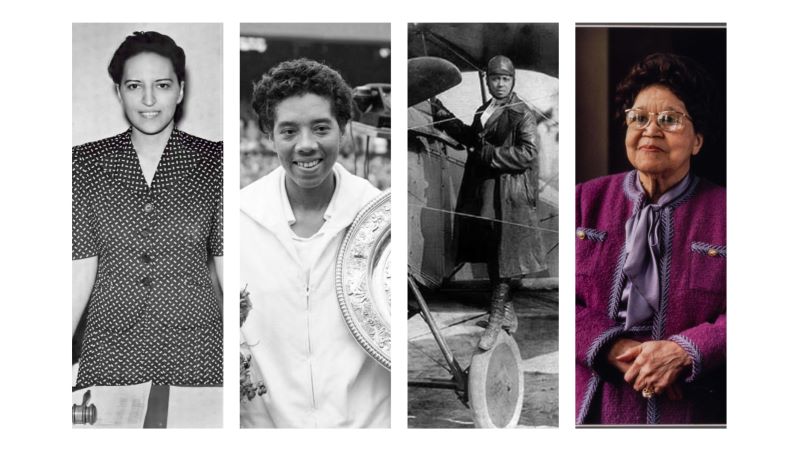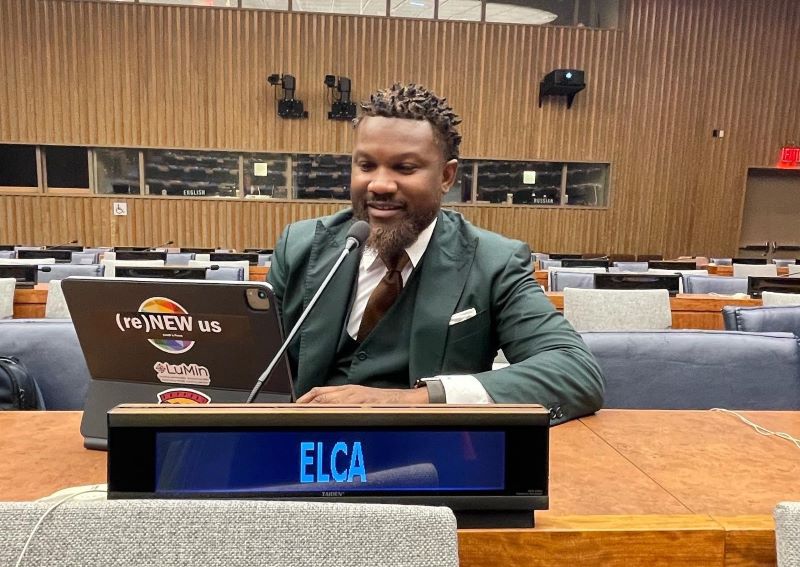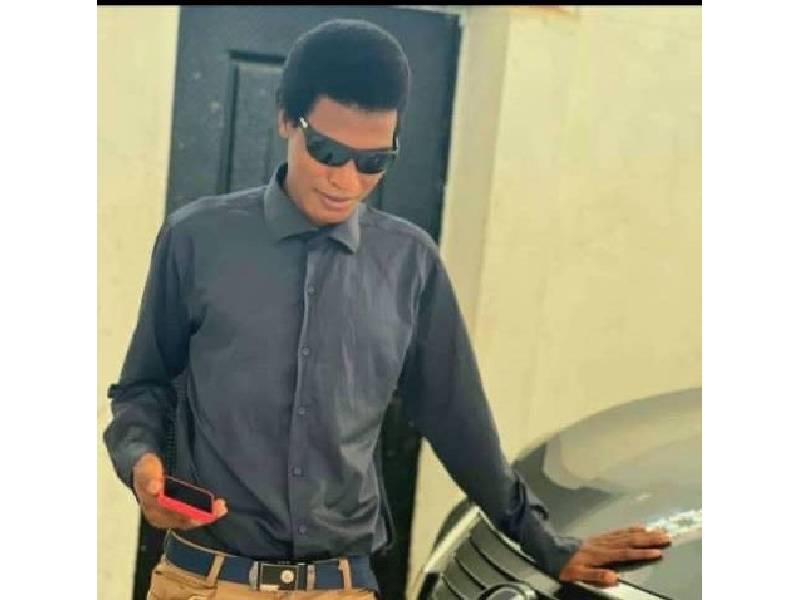When John Adoyi completely lost his vision more than a decade ago, his resolve to see the world more clearly had only sharpened. A native of Benue State now living in Lagos, Nigeria, John is a poet, writer, and one of the few visually impaired tech journalists in Africa. He currently writes for TechCabal, a media platform championing the African tech revolution. But his journey here wasn’t paved with ease, it’s been one of grit, rejection, and quiet revolution.
John wasn’t born blind. As a child, his eyesight gradually faded due to glaucoma. By the time doctors finally understood the extent of the damage, it was too late. Medical negligence had robbed him of his sight, but not his vision. “Many people like me, born into similar circumstances, may never access education,” he reflects. “That I did is a privilege I don’t take lightly.”
His education journey began in a mainstream school but changed course in 2005 when he transferred to Pacelli School for the Blind in Lagos. There, for the first time, he felt understood. The teachers were trained, the tools adapted, and blindness wasn’t something that needed explaining, it was simply a part of life.
He later gained admission into Loyola Jesuit College, a mainstream institution known for academic excellence and for offering scholarships to blind students. John deeply appreciates the scholarship opportunity, acknowledging it as a major stepping stone in his life. However, transitioning into a mixed environment came with its learning curves.
Some teachers had prior experience working with students with disabilities, while others were learning on the go. “There were moments when I had to remind teachers to describe what was written on the board, or to explain diagrams aloud,” John recalls. He emphasizes that these challenges weren’t due to negligence, but a result of a broader systemic gap in teacher preparation. Over time, he and his teachers worked together to find middle ground, an experience he looks back on with both realism and gratitude.
Journalism wasn’t his first dream, but law was. But a chance encounter with Ayoola Efukoya, a blind journalist, changed everything. “If this man can do it, I can do it even better,” John told himself. That conviction led him to study Mass Communication, excelling in the very space so many thought a blind man didn’t belong.
But his talent didn’t shield him from bias. Despite impressive credentials, John faced multiple rejections. “I’d pass the phone and email conversations,” he says, “but once they saw I was blind, the tone would shift. They’d assume I couldn’t do the job.” Once, a potential interviewee ghosted him after discovering he was blind. “They felt I couldn’t tell their story well enough. That hurt.”
Even now, the decision to disclose his disability before or after interviews weighs heavily on him. “When I said it before, they focused more on my blindness than the interview. When I don’t, things usually go smoothly.”
Yet, amid these struggles, John has found purpose. At TechCabal, he’s carved a niche for himself, focusing on digital accessibility; an area often overlooked in Africa’s tech space. Through interviews with over 25 tech startup founders, fintech operators, and app developers, he discovered a painful truth: very few had considered accessibility for persons with disabilities. Most had never even heard of digital accessibility.
“I asked them, when building your apps or websites, how many of you think about blind users? Deaf users? People with cerebral palsy?” The answers were disappointing. He could count on one hand the number of disabled professionals working in tech companies across Nigeria and Africa. “It’s always tech for the majority. We, persons with disabilities, remain invisible in the room and the design.”
He doesn’t just point out the problem, he lives the solution. Despite the barriers, John continues to write and report, albeit with support. “I still can’t publish independently without help. That’s the reality. But I’m grateful for my team; they’ve been incredibly supportive.”
His advice to other blind or visually impaired young people? “Don’t just stay in the studio. Journalism is wide enough for you. Explore social justice, disability advocacy, politics, whatever drives you. The world is full of stories waiting to be told, and we must be the ones to tell them.”
In a world where access is often taken for granted, John Adoyi is not just a journalist, he is a witness, a voice, and a quiet force reminding the African tech world that inclusion is not charity; it’s justice.





